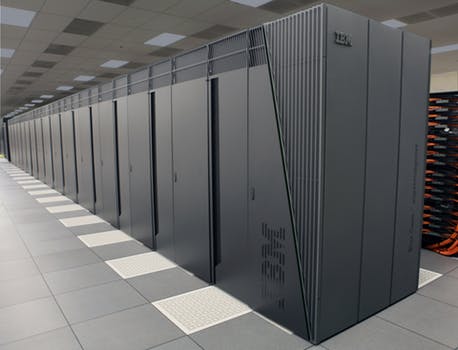TheDeveloperBlog.com
C-Sharp | Java | Python | Swift | GO | WPF | Ruby | Scala | F# | JavaScript | SQL | PHP | Angular | HTML
Java Interface Examples
Use interfaces with classes and methods. Specify the implements keyword.In main: We create instances of the Ruby and Java classes, but reference them through a Site variable.
Display: When we call the display() method the "override" implementations are located at runtime and invoked.
Java program that has interfaces
interface Site {
public void display();
}
class Ruby implements Site {
public void display() {
System.out.println("Ruby.display");
}
}
class Java implements Site {
public void display() {
System.out.println("Java.display");
}
}
public class Program {
public static void main(String[] args) {
// Use implementations through an interface.
Site site = new Ruby();
site.display();
Site site2 = new Java();
site2.display();
}
}
Output
Ruby.display
Java.display
Tip: With Collection, we can act upon many classes, like ArrayList and Vector, with unified code.
ArrayListVectorHere: A display() method receives an ArrayList and a Vector but provides only one implementation.
Info: The type parameter (such as Integer) must match for the interface code to compile.
Java program that uses Collection interface
import java.util.ArrayList;
import java.util.Collection;
import java.util.Vector;
public class Program {
public static void main(String[] args) {
ArrayList<Integer> list = new ArrayList<>();
list.add(1);
Vector<Integer> vec = new Vector<>();
vec.add(2);
vec.add(3);
// Treat the collections by their interface.
display(list);
display(vec);
}
static void display(Collection<Integer> col) {
// Display size of collection.
System.out.println(col.size());
}
}
Output
1
2
Syntax: We separate the interface names with a comma. The "implements" keyword is not repeated.
Java program that uses multiple interfaces
interface Box {
public int area(boolean accurate);
}
interface Cube {
public int volume(boolean accurate);
}
class Unit implements Box, Cube {
public int area(boolean accurate) {
if (accurate) {
return 4;
} else {
return 1;
}
}
public int volume(boolean accurate) {
if (accurate) {
return 100;
} else {
return 10;
}
}
}
public class Program {
public static void main(String[] args) {
// Create class and call methods.
Unit unit = new Unit();
System.out.println(unit.area(true));
System.out.println(unit.volume(false));
}
}
Output
4
10
Here: We reference an ArrayList as a Collection. Then we cast the Collection interface variable back to an ArrayList.
Java program that casts from interface
import java.util.ArrayList;
import java.util.Collection;
public class Program {
public static void main(String[] args) {
// Use Collection interface with ArrayList.
Collection<String> coll = new ArrayList<>();
coll.add("cat");
// Cast Collection to ArrayList.
ArrayList<String> list = (ArrayList<String>) coll;
System.out.println(list.size());
}
}
Output
1
Java program that uses interface, method, throws
interface Coffee {
public void brew(int size) throws Exception;
}
class MediumRoast implements Coffee {
public void brew(int size) throws Exception {
// Throw an exception if size is too big.
if (size > 100) {
throw new Exception("Too much coffee");
}
}
}
public class Program {
public static void main(String[] args) throws Exception {
Coffee cup = new MediumRoast();
cup.brew(1000);
}
}
Output
Exception in thread "main" java.lang.Exception: Too much coffee
at program.MediumRoast.brew(Program.java:12)
at program.Program.main(Program.java:20)
Here: The CardboardBox and PlasticBox classes implement the Box interface. We add instances of them to the HashMap in main.
Get: We call get() and access interface references. We can use the interface without determining the actual class types.
Java program that uses HashMap and interface
import java.util.HashMap;
interface Box {
public void test();
}
class CardboardBox implements Box {
public void test() {
System.out.println("cardboard");
}
}
class PlasticBox implements Box {
public void test() {
System.out.println("plastic");
}
}
public class Program {
public static void main(String[] args) {
HashMap<String, Box> map = new HashMap<>();
// ... Put new class instances in HashMap.
map.put("ship-100", new CardboardBox());
map.put("pack-200", new PlasticBox());
// ... Get interface reference from the HashMap.
// Call test on it.
Box b = map.get("ship-100");
if (b != null) {
b.test();
}
}
}
Output
cardboard
Version 1: This version of the code calls a method through an interface reference (the interface is called Tester).
Version 2: Here we call a class method directly on the Perl class. No interface is used for this version of the code.
Result: The direct method call to test() is about three times faster than an interface call to the same method.
Java program that times interface method call
interface Tester {
public void test(int value) throws Exception;
}
class Perl implements Tester {
public void test(int value) throws Exception {
// Some useless logic.
if (value < 0) {
throw new Exception();
}
}
}
public class Program {
public static void main(String[] args) throws Exception {
Tester test = new Perl();
Perl perl = (Perl) test;
long t1 = System.currentTimeMillis();
// ... Version 1: call interface method.
for (int i = 0; i < 10000000; i++) {
test.test(i);
}
long t2 = System.currentTimeMillis();
// ... Version 2: call class method.
for (int i = 0; i < 10000000; i++) {
perl.test(i);
}
long t3 = System.currentTimeMillis();
// ... Times.
System.out.println(t2 - t1);
System.out.println(t3 - t2);
}
}
Output
27 ms, Interface method call
8 ms, Non-interface method call
Related Links:
- Java Continue Keyword
- Java Convert Char Array to String
- Java Combine Arrays
- Java Console Examples
- Java Web Services Tutorial
- Java Odd and Even Numbers: Modulo Division
- Java IO
- Java 9 Features
- Java 8 Features
- Java String
- Java Regex | Regular Expression
- Java Filename With Date Example (Format String)
- Java Applet Tutorial
- Java Files.Copy: Copy File
- Java filter Example: findFirst, IntStream
- Java Final and final static Constants
- Java Super: Parent Class
- Java Date and Time
- Java do while loop
- Java Break
- Java Continue
- Java Comments
- Java Splitter Examples: split, splitToList
- Java Math.sqrt Method: java.lang.Math.sqrt
- Java Reflection
- Java Convert String to int
- JDBC Tutorial | What is Java Database Connectivity(JDBC)
- Java main() method
- Java HashMap Examples
- Java HashSet Examples
- Java Arrays.binarySearch
- Java Integer.bitCount and toBinaryString
- Java Overload Method Example
- Java First Words in String
- Java Convert ArrayList to String
- Java Convert boolean to int (Ternary Method)
- Java regionMatches Example and Performance
- Java ArrayDeque Examples
- Java ArrayList add and addAll (Insert Elements)
- Java ArrayList Clear
- Java ArrayList int, Integer Example
- Java ArrayList Examples
- Java Boolean Examples
- Java break Statement
- Java Newline Examples: System.lineSeparator
- Java Stream: Arrays.stream and ArrayList stream
- Java charAt Examples (String For Loop)
- Java Programs | Java Programming Examples
- Java OOPs Concepts
- Java Naming Conventions
- Java Constructor
- Java Class Example
- Java indexOf Examples
- Java Collections.addAll: Add Array to ArrayList
- Java Compound Interest
- Java Int Array
- Java Interface Examples
- Java 2D Array Examples
- Java Remove HTML Tags
- Java Stack Examples: java.util.Stack
- Java Enum Examples
- Java EnumMap Examples
- Java StackOverflowError
- Java startsWith and endsWith Methods
- Java Initialize ArrayList
- Java Object Array Examples: For, Cast and getClass
- Java Objects, Objects.requireNonNull Example
- Java Optional Examples
- Java Static Initializer
- Java static Keyword
- Java Package: Import Keyword Example
- Java Do While Loop Examples
- Java Double Numbers: Double.BYTES and Double.SIZE
- Java Truncate Number: Cast Double to Int
- Java Padding: Pad Left and Right of Strings
- Java Anagram Example: HashMap and ArrayList
- Java Math.abs: Absolute Value
- Java Extends: Class Inheritance
- Java String Class
- Java String Switch Example: Switch Versus HashMap
- Java StringBuffer: append, Performance
- Java Array Examples
- Java Remove Duplicates From ArrayList
- Java if, else if, else Statements
- Java Math.ceil Method
- Java This Keyword
- Java PriorityQueue Example (add, peek and poll)
- Java Process.start EXE: ProcessBuilder Examples
- Java Palindrome Method
- Java parseInt: Convert String to Int
- Java toCharArray: Convert String to Array
- Java Caesar Cipher
- Java Array Length: Get Size of Array
- Java String Array Examples
- Java String compareTo, compareToIgnoreCase
- Java String Concat: Append and Combine Strings
- Java Cast and Convert Types
- Java Math.floor Method, floorDiv and floorMod
- Java Math Class: java.lang.Math
- Java While Loop Examples
- Java Reverse String
- Java Download Web Pages: URL and openStream
- Java Math.pow Method
- Java Math.round Method
- Java Right String Part
- Java MongoDB Example
- Java Substring Examples, subSequence
- Java Prime Number Method
- Java Sum Methods: IntStream and reduce
- Java switch Examples
- Java Convert HashMap to ArrayList
- Java Remove Duplicate Chars
- Java Constructor: Overloaded, Default, This Constructors
- Java String isEmpty Method (Null, Empty Strings)
- Java Regex Examples (Pattern.matches)
- Java ROT13 Method
- Java Random Number Examples
- Java Recursion Example: Count Change
- Java reflect: getDeclaredMethod, invoke
- Java Count Letter Frequencies
- Java ImmutableList Examples
- Java String equals, equalsIgnoreCase and contentEquals
- Java valueOf and copyValueOf String Examples
- Java Vector Examples
- Java Word Count Methods: Split and For Loop
- Java Tutorial | Learn Java Programming
- Java toLowerCase, toUpperCase Examples
- Java Ternary Operator
- Java Tree: HashMap and Strings Example
- Java TreeMap Examples
- Java while loop
- Java Convert String to Byte Array
- Java Join Strings: String.join Method
- Java Modulo Operator Examples
- Java Integer.MAX VALUE, MIN and SIZE
- Java Lambda Expressions
- Java lastIndexOf Examples
- Java Multiple Return Values
- Java String.format Examples: Numbers and Strings
- Java Joiner Examples: join
- Java Keywords
- Java Replace Strings: replaceFirst and replaceAll
- Java return Examples
- Java Multithreading Interview Questions (2021)
- Java Collections Interview Questions (2021)
- Java Shuffle Arrays (Fisher Yates)
- Top 30 Java Design Patterns Interview Questions (2021)
- Java ListMultimap Examples
- Java String Occurrence Method: While Loop Method
- Java StringBuilder capacity
- Java Math.max and Math.min
- Java Factory Design Pattern
- Java StringBuilder Examples
- Java Mail Tutorial
- Java Swing Tutorial
- Java AWT Tutorial
- Java Fibonacci Sequence Examples
- Java StringTokenizer Example
- Java Method Examples: Instance and Static
- Java String Between, Before, After
- Java BitSet Examples
- Java System.gc, Runtime.getRuntime and freeMemory
- Java Character Examples
- Java Char Lookup Table
- Java BufferedWriter Examples: Write Strings to Text File
- Java Abstract Class
- Java Hashtable
- Java Math class with Methods
- Java Whitespace Methods
- Java Data Types
- Java Trim String Examples (Trim Start, End)
- Java Exceptions: try, catch and finally
- Java vs C#
- Java Float Numbers
- Java Truncate String
- Java Variables
- Java For Loop Examples
- Java Uppercase First Letter
- Java Inner Class
- Java Networking
- Java Keywords
- Java If else
- Java Switch
- Loops in Java | Java For Loop
- Java File: BufferedReader and FileReader
- Java Random Lowercase Letter
- Java Calendar Examples: Date and DateFormat
- Java Case Keyword
- Java Char Array
- Java ASCII Table
- Java IntStream.Range Example (Get Range of Numbers)
- Java length Example: Get Character Count
- Java Line Count for File
- Java Sort Examples: Arrays.sort, Comparable
- Java LinkedHashMap Example
- Java Split Examples